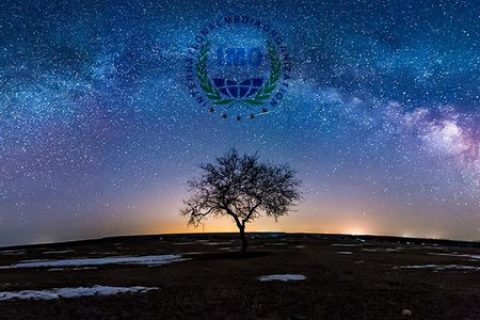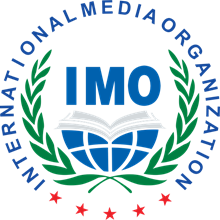-
Biosphere reserves: Fifty years of celebrating life
Jeju Island in the Republic of Korea, Mount Huangshan in China, the Saloum Delta in Senegal, Lac Saint-Pierre in Canada, and the São Paulo Green Belt in Brazil – all these sites are part of UNESCO’s World Network of Biosphere Reserves (WNBR). Launched in 1971, the Man and the Biosphere (MAB) Programme celebrates its fiftieth anniversary in 2021, with Jane Goodall, the renowned ethologist and conservationist, as patron. This pioneering programme was one of the first to promote the idea of sustainable development. Biosphere reserves aim to safeguard natural ecosystems such as dry lands, mangroves, and tropical forests, while improving the livelihoods of local people and promoting research, education and awareness-raising. Since the first designations in 1976, new biosphere reserves have been designated every year by the MAB International Co-ordinating Council, which consists of thirty-four UNESCO Member States elected by rotation. The WNBR currently has 714 sites in 129 countries worldwide, including…
-
Mongolia National Virtual Launch of the SDG 4 -Education 2030 Advocacy Month of August 2021
On 6 Aug 2021, UNESCO as custodian agency for SDG4 co-organized with United Nations Resident Coordinator’s Office (UNRC) – Mongolia, UNCT-Mongolia, UNICEF Mongolia, Mongolia Ministry of Education and Science and the Mongolian National Commission for UNESCO, the virtual National Launch of the SDG 4 -Education 2030 Advocacy Month of August 2021. The theme of the launch is “Localizing SDG4 for Inclusive, Equitable and Quality Education in Mongolia”. The United Nations Country Team in Mongolia had designated each month in 2021 for one SDG and August was devoted to SDG4. The virtual launch was chaired by Ms. Uyanga, the Secretary-General of Mongolian National Commission for UNESCO. H.E Mr Enkh-Amgalan Luvsantseren, Mongolian Minister of Education and Science opened the launch. He acknowledged the significant progress in Mongolia’s education sector since 2016 when SDG 4 – Education 2030 Agenda was localized and aligned with the country’s education sector strategy and plan. He assured…
-
Telling the story of living heritage through new media
2021 online capacity building workshops on heritage communication for World Heritage Sustainable Livelihood community leaders In May 2021, UNESCO released the report Living Heritage in the face of Covid-19, which pointed out that the pandemic has had a huge impact on living heritage around the world. Meanwhile, human beings have shown resilience on safeguarding living heritage under the challenging COVID-19 situation. The report underpinned that human should take advantage of digital technologies to increase the visibility and understanding of living heritage. Nowadays, the rapid development and application of digital and information technology has significantly changed people’s productivity and life styles. Notably, internet and new media are playing an increasingly important role. The number of internet users in China had hit 989 million, with the internet availability rate reaching 70.4%, in which 986 million Chinese people used mobile phones to surf the internet, according to a report on China’s internet development released in February 2021. Another…
-
Mosul on the path to lasting peace four years after its liberation
On 21 July, four years ago, Mosul, an iconic Iraqi city, was liberated from the shackles of violent extremists, putting an end to 36 months of destruction, fear and death. Early in the year that followed, UNESCO laid out a plan for reconstruction and reconciliation with the objective of bringing this rich and diverse city with its pluralistic history, a crossroads of cultures and religions of the Middle East, back to its former glory. At the Kuwait International Conference for the Reconstruction of Iraq, in February 2018, UNESCO Director-General Audrey Azoulay announced the launch of the Organization’s flagship initiative, “Revive the Spirit of Mosul”. What does this mean? Revive the spirit of Mosul is a ground-up initiative that aims not only to restore the historic elements of this iconic city but to also reinvigorate the sense of community that among other things includes religious diversity. At one intersection of history…
-
World Heritage Committee inscribes four cultural and one natural site on UNESCO’s World Heritage List
The World Heritage Committee yesterday added four sites to UNESCO’s World Heritage List and one extension to an existing transnational natural site in Europe. The new cultural sites are located in Italy, Slovenia, the Russian Federation and the United Kingdom. The natural site inscribed today is Ivindo National Park in Gabon. The World Heritage Committee also approved an extension to the existing World Heritage site of Ancient and Primeval Beech Forests of the Carpathians and Other Regions of Europe. These additions were made during the extended 44th session of the World Heritage Committee held online and chaired from Fuzhou (China), which is examining nominations from both 2020 and 2021. Brief descriptions of the newly inscribed sites: Italy, The Porticoes of Bologna The serial property comprises twelve component parts consisting of ensembles of porticoes and their surrounding built areas, located within the Municipality of Bologna from the 12th century to the…
-
AI Ethics: Another step closer to the adoption of UNESCO’s Recommendation
Paris, 2 July, After months of constructive dialogue and negotiation, representatives from UNESCO’s member states have agreed on the draft text of an ambitious and wide-ranging new template for the ethical development and deployment of Artificial Intelligence. Momentum for change on ethical AI is gathering in the run-up to UNESCO’s General Conference in November – when the Recommendation will be submitted to UNESCO member states for adoption. The Recommendation will establish a global framework to ensure that digital transformations promote human rights and contribute to the achievement of the Sustainable Development Goals. It will address issues around transparency, accountability and privacy, contain action-oriented policy chapters on data governance, education, culture, healthcare and the economy, and provide governments and policy makers with a global framework for regulating AI. Once adopted, leaders everywhere will have a shared reference point on how to control the risks and harness these new technologies as a…
-
Reopening schools cannot wait: joint statement by UNICEF and UNESCO
Statement by UNICEF Executive Director Henrietta Fore and UNESCO Director-General Audrey Azoulay It’s been 18 months since the COVID-19 outbreak started and education for millions of children is still disrupted. As of today, primary and secondary schools are shuttered in 19 countries, affecting over 156 million students. This should not go on. Schools should be the last to close and the first to reopen. In their efforts to limit transmission, governments have too often shut down schools and kept them closed for prolonged periods, even when the epidemiological situation didn’t warrant it. These actions were frequently taken as a first recourse rather than a last measure. In many cases, schools were closed while bars and restaurants remained open. The losses that children and young people will incur from not being in school may never be recouped. From learning loss, mental distress, exposure to violence and abuse, to missed school-based meals…
-
Hello world!
Hello world!
-
UNESCO and WHO urge countries to make every school a health-promoting school
UNESCO and the World Health Organization today launched the Global Standards for Health-promoting Schools, a resource package for schools to improve the health and well-being of 1.9 billion school-aged children and adolescents. The closure of many schools around the world during the COVID-19 pandemic has caused severe disruptions to education. An estimated 365 million primary school students have gone without school meals and significantly increased rates of stress, anxiety and other mental health issues have been observed. Schools play a vital role in the well-being of students, families and their communities, and the link between education and health has never been more evident. These newly launched global standards are designed to create schools that nurture education and health, and that equip students with the knowledge and skills for their future health and well-being, employability and life prospects. —— Dr Tedros, WHO Director-General Based on a set of eight global standards, the…
-
Prof. Shahbaz Khan, Director of UNESCO Beijing Office Attended the Opening Ceremony of the 1st Jingshi Students International Exchange Week Held by Beijing Normal University
On 28 June 2021, at the invitation of Beijing Normal University (BNU), Prof. Shahbaz Khan, Director of UNESCO Beijing Cluster Office attended the opening ceremony of the first Jingshi Students International Exchange Week, joined in the panel discussion on “Youth Global Competency”, and had an official meeting with Prof. Zuoyu Zhou, the Vice President of BNU. Hosted by Prof. Saini Yang, Prof. Khan attended the panel discussion together with Mr. Guoguang Zheng, Mr. Yansheng Ma, and Prof. Xiaodong Zeng. Prof. Khan shared his insights and expectations of Chinese youth on how to boost their global competence and qualifications for international organizations. Youth has to face up to global challenges, such as inequality and climate emergency issues. UNESCO has launched programmes including Global Citizenship Education (GCED) and Education for Sustainable Development (ESD) to empower learners of all ages with the knowledge, skills, values and attitudes to address the interconnected global challenges…



